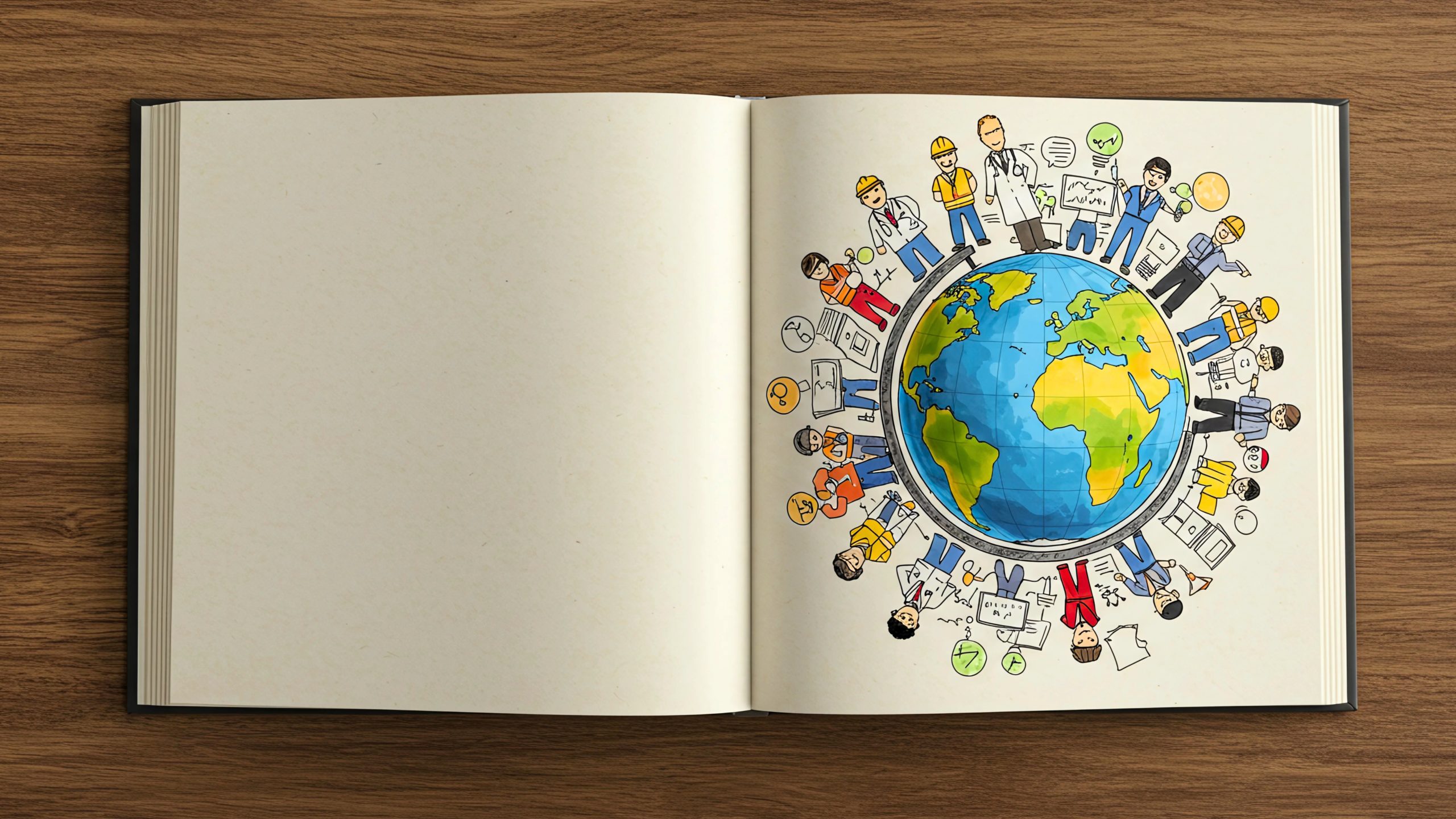Beyond Textbooks: How SDGs are Brought into Delhi Government Schools
In this blogpost, Shreyan Acharya highlights an initiative launched by the Directorate of Education in Delhi for students in government schools to create magazines focused on the Sustainable Development Goals. The initiative enhanced students’ engagement with global goals and their connections to local challenges.
The Agenda 2030, adopted by the United Nations, outlines 17 Sustainable Development Goals (SDGs) (for the period 2015-2030) that are said to be essential for ensuring human dignity, equity, and prosperity. These goals establish a global framework for countries to align their development trajectories with national and international development agendas. Yet, the visionary nature of the goals lacks the mechanism for accountability and outreach to grassroots stakeholders. Thus, the question arises whether regular citizens, especially the young, are aware of these goals. And, how do secondary students of public schools engage with the SDGs?
While India has made strides in integrating the SDGs into its development ecosystem, such as through the NIPUN Bharat Mission, which aims to achieve foundational literacy and numeracy at the primary level, awareness and engagement with the SDGs at the secondary and pre-higher education levels remain limited. This is regrettable because for students of the government schools who encounter basic challenges such as inadequate quality education, lack of health facilities and sanitation in their communities, the SDGs take on local relevance and provide a framework to connect with their lived experience, addressing wider questions of quality of life and sustainable development.
Student-Led Magazines in Delhi Government Schools
In 2022, an initiative was launched across 30 pilot government schools in Delhi for secondary students to create magazines focused on the SDGs, which was later scaled up to a larger number of government schools. The initiative was not imposed externally, but emerged from collaborative efforts within the Directorate of Education. During my tenure at the Directorate of Education in Delhi, I conducted field visits, personal interviews and one-to-one interactions with government school principals and government officials in 2022 that revealed a significant knowledge gap on global issues and opportunities for students to express their perspectives. A consensus was subsequently built between the Director of Education and the concerned officials of the school branch of the Directorate to introduce student magazines as a creative medium.
The objective was to use student-led magazines to foster awareness, ownership of, and advocacy for the SDGs so that students develop capabilities of expanding their outreach and understanding beyond their classrooms, nurturing agency and continuity in their engagement with SDGs. The initiative served as a tool that bridges global discourses to local realities, enabling students to see themselves as active participants. The pilot was launched in 30 government-run schools, with the first edition centred on “SDG 4: Quality Education”, shaped by the enduring impact of COVID on learners’ educational experiences. The uniformity of the sub-theme was maintained for structured instructional design and quality assurance. Editorial boards composed of students with teacher mentorship were primarily responsible for creating their school’s magazines and advocating the interlinkages of SDGs in their respective schools, encouraging student participation and leadership.
Through focus group discussions at the school level and student testimonies during the launch event, students expressed how the magazine became the medium to understand the broader significance of sustainable development. They saw themselves as contributors to global goals, with the capacity to localise these ideas in their schools and communities. Teachers, too, reported that the initiative served as a valuable learning opportunity. Many acknowledged that their understanding of the SDGs had been limited before this initiative. Therefore, the magazine became a co-curricular intervention integrating interdisciplinary thinking and real-world relevance.
Reimagining Civic Engagement & Learning
The impact of the initiative is particularly significant given the socio-economic diversity in Delhi’s government schools. Unlike students in elite private schools who often access global platforms like Model UNs, students in government schools lack avenues for engaging with international development discourse. The magazine thus served as a democratising platform, marking an accessible way for all students to participate, promoting confidence-building, leadership, communication skills, and critical thinking (Gupta & Acharya, 2022). Students independently managed editorial processes, giving them a sense of ownership and responsibility that mirrors the skills expected in higher education and beyond.
The testimonies of students and teachers highlighted the interconnectivity of global challenges in the local context. The student magazines opened doors towards cultivating the values of harmonious collaboration towards addressing global challenges. Students collectively affirmed that the initiative fosters responsible citizenship at an early stage. It marks a path towards widening the exposure with a broader perspective on the inextricability of global and local challenges by enhancing awareness of the global goals.
The initiative encouraged student dialogues by bringing the SDGs into classrooms and bridging a pathway from school to global citizenship. It is a prototype of rethinking global citizenship in the government schools. With sustained institutional support, government schools can move beyond symbolic one-off interventions to cultivate equitable spaces for young students to meaningfully connect global agendas to local challenges. Down the line, such initiatives can potentially lead to greater equality in public schools.
The Author:
Shreyan Acharya works at the intersection of education and governance, with professional experience as a CMIE Fellow with the Government of NCT of Delhi and as Project Manager for State Reforms at the Central Square Foundation. He was part of the team that designed and implemented the project on SDGs through student-led magazines during his tenure with the Delhi government. Academically, he holds a law degree from Guru Gobind Singh Indraprastha University, India, and a Master’s in Development Studies from the Institute of Development Studies, University of Sussex.

